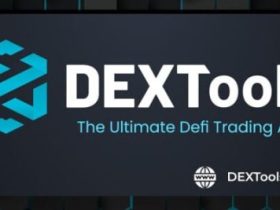Solana co-founder Anatoly Yakovenko revealed on April 5 that the bug causing reduced functionality in the blockchain ecosystem, including transaction failures and a slowdown in block finalization, had been “identified and patched.”
Yakovenko added that while the Solana network glitch is fixed, implementing other key updates may not be straightforward.
Solana Network Glitch Spurts from Version 1.14 Upgrade
In an X post, Yakovenko stated that dealing with bugs was more complex than keeping a network active and operational for users.
“Dealing with congestion bugs sucks so much more than total liveness failure. The latter is one and done, bug is identified and patched and chain continues,” the post read. “The former has to go through the full release and test pipeline. Shipping fast is impossible.”
Yakovenko’s announcement follows co-founder Raj Gokal’s post on X earlier this month, which addressed the overall concerns of the Solana chain and the deployment of world-class personnel to tackle the issues.
world class engineering teams are working around the clock to push fixes to improve the experience of submitting transactions on @solana.
I am messaging them multiple times a day asking how it’s going, and they tell me this is a very helpful way to contribute to the solution.
— raj (@rajgokal) April 4, 2024
Since the beginning of March, the Solana network has been forced to address growing complaints regarding its ongoing transaction issues, including an estimated 77.4% failure rate.
Users, developers, and other services deployed on Solana have been affected by this network glitch.
Currently, 77.4 per cent of transactions on the Solana network fail and are not executed – all because of the hype around meme tokens. pic.twitter.com/GdL2B2GsSc
— Sjuul | AltCryptoGems (@AltCryptoGems) April 5, 2024
Dune Analytics data also revealed that over 70% of non-voting transactions had failed since the start of April, a notable increase from the 54% failure rate recorded in March.
Meanwhile, the Solana Foundation has announced several measures and recommendations to respond to the widespread network congestion. These include Optimizing Computing Unit (CU) Usage, where developers are encouraged to specify a compute unit budget for their transactions to avoid unnecessary resource allocation and improve efficiency.
The Solana team further said that a major update (v1.18) has been scheduled for April to address congestion issues and improve network performance and reliability.
Solana Blockchain Network Outages Rises
Solana rebounded from the aftermath of FTX’s collapse in 2022, which caused the price of its native token, SOL, to drop below $10. This was due to FTX ex-CEO Sam Bankman’s staunch support for Solana, which elicited controversy.
Interestingly, the asset surpassed the $200 level threshold on March 18, 2024, and is predicted to hit its November 2021 all-time high of $260 by the end of 2024.
CoinMarketCap data on SOL 1-year Market Trend
The resurgence has been primarily driven by its identity as a smart contracts platform that facilitates fast and cost-effective cryptocurrency transactions – a strong alternative to the Ethereum congested ecosystem and high gas fee.
Other drivers include projects deployed on the change, such as popular memecoins like Bonk (BONK) and dogwifhat (WIF), which have broken into the top 50 tokens by market cap and created several crypto millionaires.
These factors led to heavy congestion on the Solana network, which greatly affected the processing of crypto transactions, delays in communication between nodes, and the overall performance of the platform.
According to data from blockchain expert Dagnum-PI, Solana is currently congested with an average ping time (APT) of 20-40 seconds, signaling delays in node communication.
#Solana is currently congested with an Average Ping Time of 20-40s, 30-50% Ping loss, up to 50-80% failed transactions. $SOL
Solana’s TPS isn’t 50k due to vote transactions; it’s just marketing. In reality, under full network conditions with 30-50s wait times, Solana maxes out… pic.twitter.com/NJJfZGDBgo
— Dagnum P.I. (@Dagnum_PI) March 17, 2024
The analyst noted a ping loss ranging from 30% to 50%, which has contributed to transaction failures and delays, and up to 50% to 80% failed transactions, which highlights critical issues with transaction processing and network stability.
Dagnum-PI data further indicated that high levels of spam from memecoin activity and Miner Extractable Value (MEV) have overwhelmed Solana’s capacity, leading to blockchain network outages.
Solscan March 17 data on meme coin activity
As Solana’s value rises, the network’s history of outages has raised concern due to the impact of congestion, which could further complicate blockchain issues.
Solana users demand better: network congestion and transaction failures are unbearable.$SOL must step up to meet the demands of a bullish market with its current 76.8% transaction failure rate. pic.twitter.com/F0vVpUtyMj
— Kyledoops (@kyledoops) April 5, 2024
According to data from CryptoManiaks, Solana has witnessed nine blockchain network outages since 2021, with over 150 hours of downtime.
Recall that network congestion in October 2023 prompted liquidation and drove away users from the platform. The network also suffered downtime in February, which led to five hours of service disruption.
The post Solana Founder Explains Reason For Network Glitch appeared first on Cryptonews.






